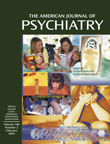Reward Value of Cigarette Smoking for Comparably Heavy Smoking Schizophrenic, Depressed, and Nonpatient Smokers
Abstract
OBJECTIVE: The study goal was to determine whether schizophrenic and depressed smokers perceive the reinforcement value of cigarette smoking differently from nonpsychiatric smokers who smoke as heavily. METHOD: The authors assessed the preferences for smoking cigarettes versus engaging in other pleasant activities, the perceived advantages and disadvantages of smoking, and the amount of reinforcement that would be needed to attain smoking abstinence among 26 schizophrenic, 26 depressed, and 26 nonpsychiatric heavy smokers. RESULTS: Both schizophrenic and depressed participants chose smoking as their preferred activity more often than nonpsychiatric smokers, and they did not differ from each other. The patients also exceeded the comparison group in the benefits they ascribed to smoking and felt they would require more incentives to quit, but they attributed comparable drawbacks to smoking. CONCLUSIONS: Schizophrenic and depressed smokers recognize many drawbacks associated with smoking, but compared to nonpatients who smoke as heavily, they also perceive more benefits and find cigarettes more appealing than alternative rewards. The heightened reward value of smoking warrants attention in tailoring tobacco control interventions for schizophrenic and depressed smokers.



